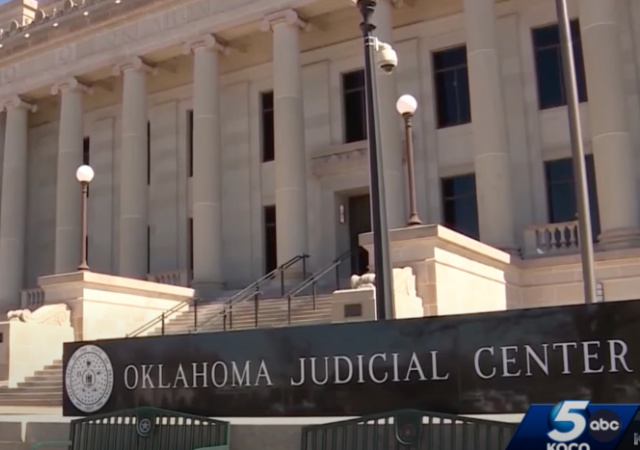Oklahoma Supreme Court Rejects Reparations Claim for Tulsa Race Massacre

The Oklahoma Supreme Court today rejected a reparations claim from survivors of the 1921 Tulsa Race Massacre. The plaintiffs made two claims: public nuisance and unjust enrichment.
The high court affirmed a lower court’s dismissal of the claims, which resulted in this appeal, as Legal Insurrection reported.
The plaintiffs’ public nuisance claim alleged they “continue[d] to face racially disparate treatment and City-created barriers to basic human needs” after the massacre.
The plaintiffs’ unjust enrichment claim “alleged that Defendants appropriated the name ‘Black Wall Street,’ a moniker for the [destroyed] Greenwood neighborhood” in tourism materials “without returning any of those benefits to members of the community” and thus unjustly enriching themselves.
Oklahoma Supreme Court’s Holding
“We . . . hold that Plaintiffs’ grievances do not fall within the scope of our state’s public nuisance statute,” the decision reads, “and Plaintiffs’ allegations do not support a claim for . . . unjust enrichment.”
The court rejected the plaintiffs’ argument that the “lingering consequences” of the massacre created a public nuisance: “The continuing blight alleged . . . implicates generational-societal inequities that can only be resolved by policymakers—not the courts.”
“Today’s holding,” the court continued, “is consistent with our recent public nuisance jurisprudence: expanding public nuisance liability to include lingering social inequities from historical tragedies and injustices runs the risk of creating a new ‘unlimited and unprincipled’ form of liability.”
Under such a liability theory, “both State and non-State actors could be held liable for their predecessors’ wrongdoing, in which current actors played no part.”
The court also rejected the plaintiffs’ unjust enrichment claim, finding the “Defendants’ fundraising and community development efforts [referencing Black Wall Street]—absent fraud, abuse of confidence, or unconscionable conduct—do not amount to a claim of unjust enrichment.”
“The City of Tulsa respects the court’s decision and affirms the significance of the work the City continues to do in the North Tulsa and Greenwood communities,” a city representative told Legal Insurrection. “[T]he City remains committed to working with residents and providing resources to support the North Tulsa and Greenwood communities.”
Background on the Massacre
Rejecting the claim, the Oklahoma Supreme Court’s opinion recognized the unusual nature of this case in that “the tragedy that forms the basis of the present appeal is acknowledged and memorialized, at least in part, in Oklahoma law.”
Oklahoma law memorializes part of the findings of a state commission on the massacre, which the law describes as a “breakdown of the rule of law in Tulsa” after “an assembled white mob” responded to an alleged attempted rape of a white woman by a black man.
The commission’s memorialized findings state that “some local municipal and county officials failed to take actions to calm or contain the situation once violence erupted and, in some cases, became participants in the subsequent violence . . . and even deputized and armed many whites who were part of a mob that killed, looted, and burned down” a predominantly black neighborhood in Tulsa.
“The staggering cost of the Tulsa Race Riot included the deaths of an estimated 100 to 300 persons, the vast majority of whom were African-Americans, [and] the destruction of 1,256 homes,” the commission found.
The commission estimated property damage at “approximately $2 million in 1921 dollars or $16,752,600 in 1999 dollars.”
“Even after the initial violence subsided, local officials engaged in actions that exacerbated the harm,” the opinion notes, by refusing to release black arrestees without “the application of a white person.” Officials also imposed onerous rebuilding requirements that made rebuilding too expensive, as noted by the commission’s findings.
The opinion:
CLICK HERE FOR FULL VERSION OF THIS STORY